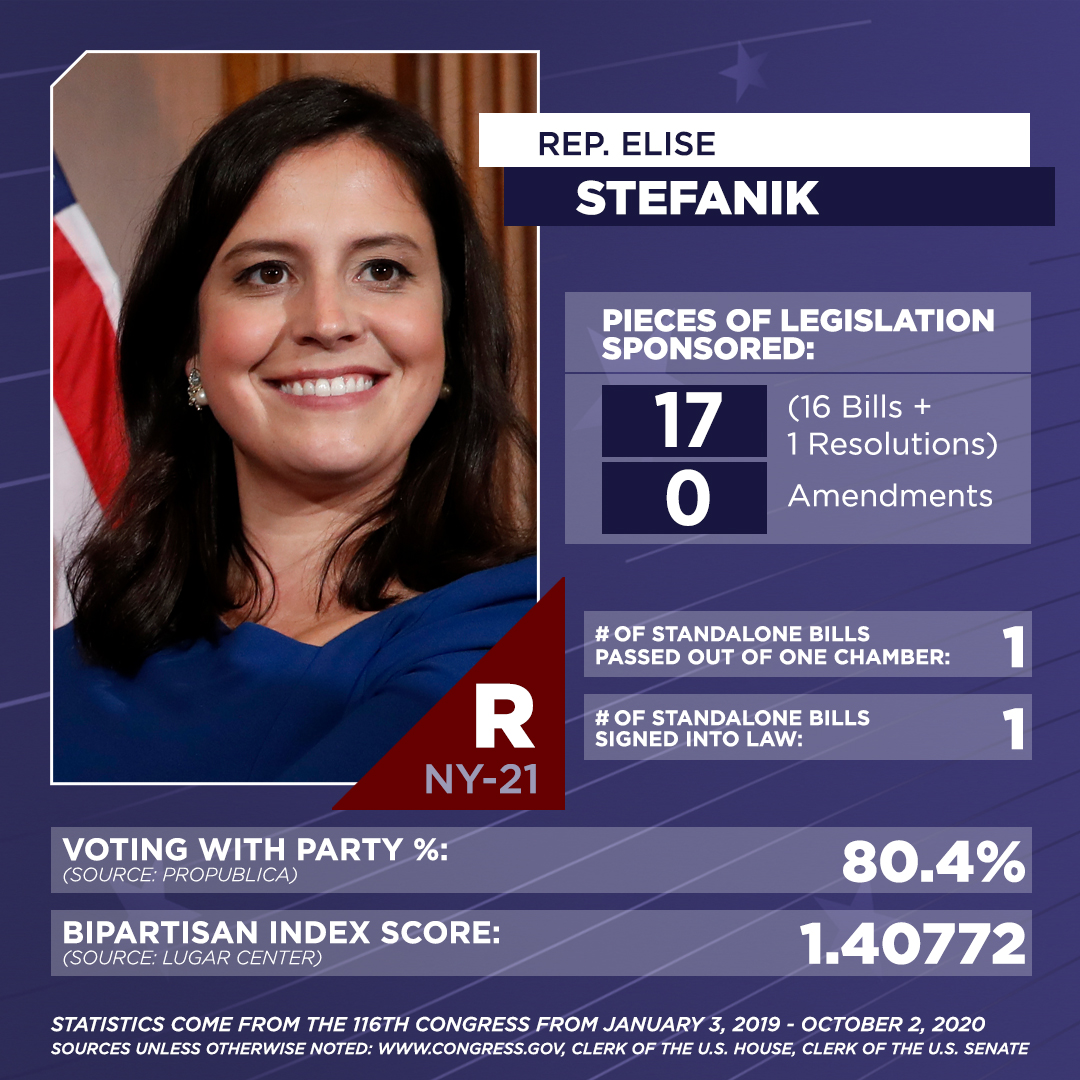Elise Stefanik has gained a significant profile boost in this term for being an outspoken defender of President Donald Trump, especially as he was going through the House impeachment inquiry. While Stefanik’s rhetoric is more in-line with die-hard Republicans, her floor record is far more moderate. She has voted against the Republican party on numerous occasions and has a reputation on Capitol Hill for working across the aisle. She was successful in getting one standalone bill signed into law, which created silver dollar coins to commemorate women’s suffrage and support for the 19th Amendment.

Editor's Note: This member of Congress did not provide us with an on-the-record statement in response to this project.
What the rankings mean:
Number of bills sponsored:
This metric measures the number of unique bills put forward by a Representative or a Senator. A Resolution usually expresses an opinion or addresses procedure in the House or Senate and doesn’t go to the President. An Amendment is a change to the language of legislation. Everything has to be voted on.
Number of bills passed out of one chamber:
Getting a bill passed through a chamber is tough. In order to pass a bill out of a chamber, a member of Congress must build consensus among his or her colleagues.
Number of bills signed into law:
If a bill from an opposite party is signed into law by a President, the achievement is a significant victory for that Member of Congress if the bill is significant. Many non-controversial bills are signed into law as a matter of routine.
Percentage a member votes with his or her party:
Source: ProPublica. Procedural votes count toward this score and it isn’t entirely indicative of a member’s loyalty, or disloyalty, to the party.
Lugar Center Bipartisan Index Score:
The Bipartisan Index is a joint project of The Lugar Center and the McCourt School of Public Policy at Georgetown University. Scores above 1.0 are outstanding. Scores above .5 are very good. Scores below -.5 are poor. Scores below -1.0 are very poor.



